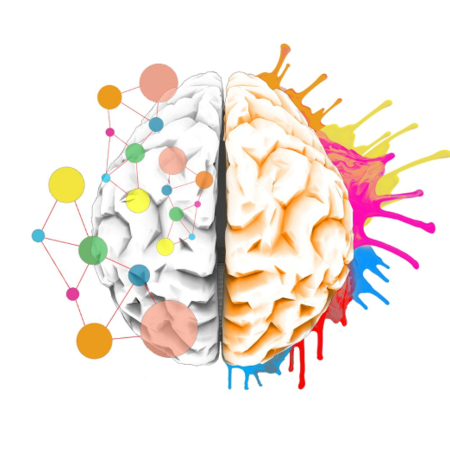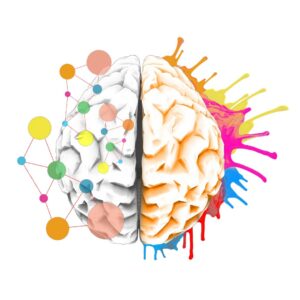
Freud and Pfister: A Love Story
A Psychoanalyst and a Pastor – unlikely yet natural companions
Early twentieth-century Vienna was bustling. A young physician named Sigmund Freud, after experimenting with hypnosis (among other things, ahem), began gathering what came to be called the Wednesday Psychological Society. The small group of interested intellectuals met under Freud’s guidance. Over time they birthed what became psychoanalysis. The meetings, held Wednesday evenings, grew to include names now as recognizable as that of their leader. These are names like Carl Jung and Alfred Adler. But there was another not too often discussed: A little-known Swiss Lutheran minister by the name of Oskar Pfister.
A pastor’s son himself, Pfister spent his entire adult life in parish ministry even as his involvement with Freud’s movement grew. He partook in many interests from biblical scholarship and theology to education and psychology. And as a member of Freud’s inner psychoanalytic circle, Pfister enjoyed a lengthy and loving correspondence with the famed physician from 1909 until Freud’s death in 1939. The two had very little in common. Freud was Jewish, but he held religion in militant contempt. He was a medical doctor and a proud man of empirical science. Pfister was a devout Protestant with an earnest and enduring passion for pastoral care. He spent his days either serving a parish or steeped in the humanities. And yet in reading their collected correspondences, one cannot help but feel touched by what appears to be a rigorous, playful, and deeply affectionate relationship. Sigmund sent pained letters to Pfister at the passing of Oskar’s wife. Freud’s son later recalled that Pfister was always unique among his father’s visitors, never neglecting to say hello to the children too. Freud’s relationships with the more famous Jung and Adler frayed. His friendship to Pfister endured until death.
The two conversed frequently, exchanging a rich dialogue about the young therapy’s role in society at large and its limitations as a healing exercise. Pfister’s influence challenged Freud, ever the self-proclaimed empiricist, to think beyond materialism to the ethereal mysteries of the psyche (or, translated from the Greek: the soul).
“It seems to me,” Pfister wrote to Freud in 1929, “that not only children but adults very frequently have an inner need of positive values of a spiritual nature, of ethics and a philosophy of life, and these…psychoanalysis cannot supply.” Pfister knew then of the ways scientism[1] was limited as it drifted into the phenomenological realms of human experience. Freud, almost as if sighing in some acquiescence, later replied, “For the present I put up with doctors, so why not the priests too?”
Their exchanges illustrate many things, the whole value of a good friendship not least among them. But it is worth highlighting two others. The first is this: Psychotherapy must not alienate itself from arts, humanities, and theology. Freud, for all his genius, insisted on the science of his healing analysis in error. Science requires a value-neutral observer, controlled and wholly accounted for. But no clinician can bracket out the impossibly vast complexities at play in any given interaction—cultural histories, political contexts, religious traditions, personal experiences, and philosophies—to achieve some coveted, untainted view of a person. Yet this is just what scientistic psychology claims to do. But it is not only impossible to evacuate any theology, culture, or art out of the talk therapies, it is also dangerous. Making scientistic claims really allows the field to smuggle in all of these so-called softer cultural and philosophical convictions under the guise of scientific authority. When left unrecognized, clinical psychology tends to behave more like a religion or philosophy, all while sporting an ill-fitting lab coat. Certain American brands of clinical psychology, in the middle 20th century, for example, forwarded a science of self. Arguably, this was a technical, “scientific” justification of self-actualization and unfettered individualism. In so many ways, it was a cultural ethic disguised as pure science. The delicate social scales teetering between individual freedom and cultural cohesion tipped. And by neglecting the humbling influence of the so-called anti-sciences, an unintended behemoth formed. Many psychologists and theorists look back at this era armed with phrases like the narcissistic age, the me-generation, and the cult of self-worship. And they argue we are reaping its harvest today.
Please do not misunderstand me. History is filled with legitimate needs for science-driven liberation, but it is theology, it is art, it is philosophy that tempers hubris. These balancing forces exert influence by preserving the mysteries of the undeniable subjectivities in human life.[2] They remind us of the things we do not know. These forces also speak to those cosmic “why” questions that so often bring people into psychotherapy. These questions are left untouched by the pure “whats” and “hows” restricting science. In the cranky words of the great poet, W. H. Auden:
Our apparatniks will continue making
the usual squalid mess called History:
all we can pray for is that artists,
chefs, and saints may still appear blithe to it.
Clinical psychology needs both the scientific and the theological or philosophical. Clinicians need to be versed in these less scientific activities that make up the world just as much as they are steeped in the evidence-based manuals and scientific traditions of the work. The institutions representing al these different fields inevitably come together and integrate under the cover of our tent.
But this brings us to the second Freud-Pfister lesson. I borrow words from psychologist Dr. Stephen Sandage and biblical scholar Dr. Jeannine K. Brown: Institutions do not integrate; people integrate. If science, theology, philosophy, cultural ethics, and art are to meet, they will only do so through real-life, flesh-and-blood relationships. Pfister and Freud engaged in integrative efforts when they exchanged letters, when they broke bread with one another’s families, and when they challenged one another with playful pointedness. When we gather across disciplines, we do not only engage in abstract discussions, but we also forge trusted relationships that network our community efforts. Clearly, this is the intended spirit of OLOGY. So, for the sake of our disciplines and our neighbors, may we live into Freud’s begrudging words. Doctors, priests, educators, clinicians: Put up with one another.
[1] Here I use the term to describe the unwarranted application of the scientific method in realms not suited to its approach.
[2] Some may refer to these as spirituality.

